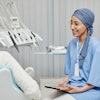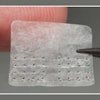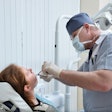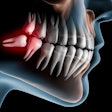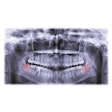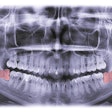
Maxillofacial injuries due to electronic bicycle (e-bike) accidents may be more severe than conventional cycling accidents, according to a study published in the Journal of Oral and Maxillofacial Surgery. However, patient characteristics play a more crucial role than type of bicycle in these fractures.
Bicycle-related accidents often result in maxillofacial injury. With the increased use of e-bikes, the study authors believe that there is a need to study the epidemiological characteristics of the maxillofacial injuries to best guide the diagnostic process in emergency departments and give input in discussions about the use of helmets.
"As bicycle related accidents are considered one of the major causes of maxillofacial fractures, recommendations have been made to make wearing a helmet mandatory for cyclists," wrote the authors, led by Dr. Pieter Date van der Zaag of the department of oral and maxillofacial surgery, University Medical Center Groningen, University of Groningen in the Netherlands (JOMS, April 6, 2022).
E-bikes have an electric motor to assist with pedaling, making it possible to travel at faster speeds. But are e-bikes inherently more dangerous than conventional bicycles? Research has not yet definitely answered that question, but it is especially important in the Netherlands, where people use both e-bikes and conventional bicycles and the number of bicycle-related injuries are rising.
Researchers assessed differences in the frequency and severity of maxillofacial fractures between e-bike and conventional bicycle-related accidents in a Dutch population. To explore the link between maxillofacial fractures and bicycle-related accidents, they analyzed data from electronic patient files and the Dutch Trauma Registry.
Between May 2018 and October 2019, 311 emergency department patients with maxillofacial injuries following conventional bicycle and e-bike accidents in the Netherlands were studied. Researchers analyzed factors influencing the risk in e-bike and conventional bicycle accidents, including age, alcohol use, and comorbidities as covariates for maxillofacial fractures and dental injuries.
Of the 311 patients with maxillofacial injuries due to bicycle accidents, 238 patients suffered a conventional bicycle-related accident (77%), and 73 patients suffered an e-bike-related accident (23%). Midfacial fractures were more common in e-bike accidents, while mandibular fractures were more common in conventional bicycle accidents.
However, after adjusting for relevant patient characteristics, the authors found no significant association between the type of bicycle and risk for various maxillofacial fractures or dental injury. The study authors concluded that maxillofacial injury was generally comparable among the two groups.
"It is not the type of bicycle ridden but the patient characteristics that play a crucial role in maxillofacial fractures following a bicycle accident," Date van der Zaag and colleagues concluded.
